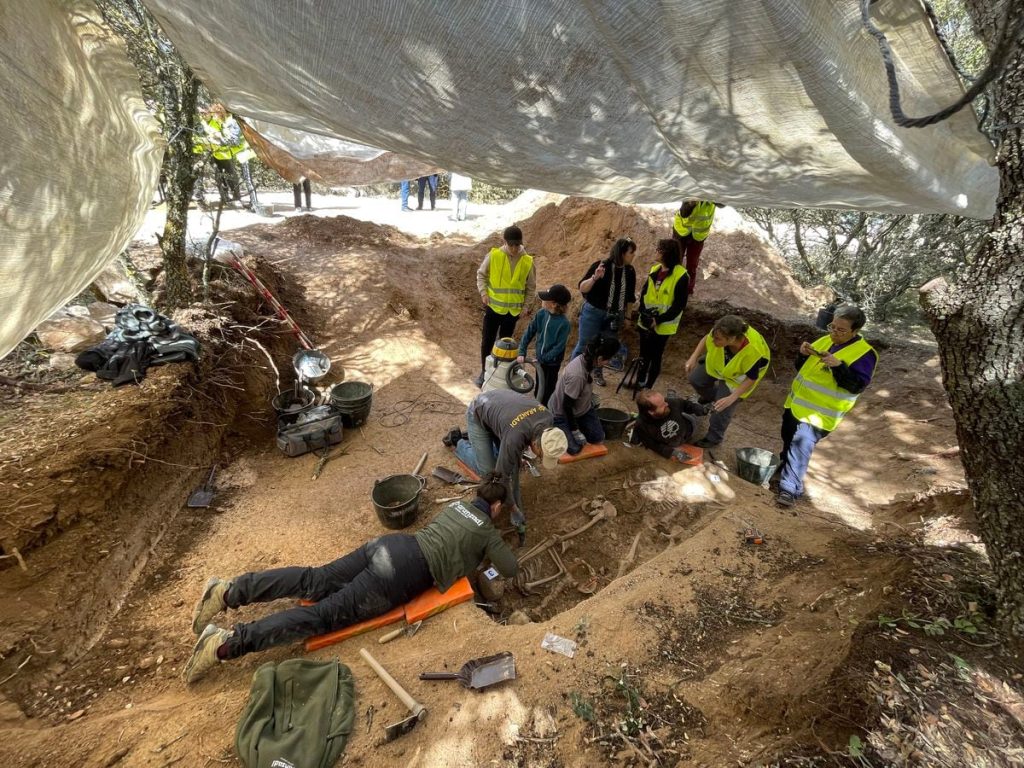The exhumation of a mass grave from the Spanish Civil War took place in Andradas, Soria on March 14th, organized by the Association Recuerdo y Dignidad. The Vice President of the Soria Provincial Council, José Antonio de Miguel Nieto from the PP party, attended the exhumation despite ideological differences, emphasizing the importance of helping families of victims find closure. The remains of four men, including a councilor and a teacher, were recovered from the grave. De Miguel’s presence was appreciated by the families, including the granddaughter of one of the victims, who emphasized the peace and closure brought by the exhumation.
However, shortly after De Miguel’s visit to the exhumation, the PP party, along with Vox, proposed a law in Castilla y León to repeal the regional memory legislation and replace it with a Concordia law that avoids mentioning the 1936 coup and dictatorship. De Miguel expressed his disagreement with this initiative, believing that manipulating history through legislation is futile. The granddaughter of one of the victims expressed disappointment with the proposed law, seeing it as a betrayal to the families of the victims. She appreciated De Miguel’s support during the exhumation, where he assured assistance in accessing archives for further research.
Iván Aparicio, a member of the Association Recuerdo y Dignidad, noted De Miguel’s previous collaboration in exhumations, recalling an incident in Cobertelada where locals objected to the presence of a republican flag. De Miguel intervened to mediate and encourage respect for the victims’ families. The exhumation in Andradas involved multiple authorities, including the Guardia Civil, judicial police, and prosecutors. The Association filed a complaint for crimes against humanity in the Almazán court. Felisa, the granddaughter of one of the victims, eagerly awaits the genetic identification of her grandfather so she can finally lay him to rest alongside his father.
Felisa shared her family’s history, revealing that her father joined the Republican side in the war after his father’s murder, facing imprisonment and a death sentence that was later commuted. She also recounted the retrieval of her grandfather’s pocket watch, auctioned after his death, which was subsequently lost. The investigations led by the Association Recuerdo y Dignidad into the victims’ backgrounds shed light on the injustices they faced even after their deaths. The local community’s collaboration proved crucial in finding the gravesite, despite initial reluctance to discuss the past.
Sherezade Benito Menéndez, a researcher with the Association, detailed the posthumous persecution endured by the victims’ families, including financial penalties and professional repercussions. The exhumation in Andradas uncovered a pencil among the remnants, symbolizing the lives lost and the stories waiting to be told. The dedication of organizations like Recuerdo y Dignidad and the support of individuals like José Antonio de Miguel Nieto provide hope for families seeking closure and justice for their loved ones lost during the Spanish Civil War.














